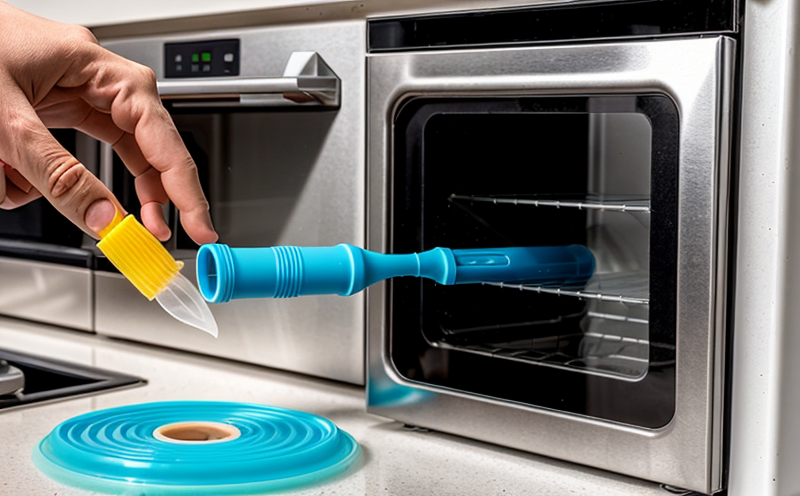ASTM D695 Compressive Strength Testing of Household Plastics
The ASTM D695 standard is one of the most widely used methods in the plastics industry for determining the compressive strength of rigid polymeric materials. This test is particularly important in household applications where material durability, safety, and performance are crucial. The test procedure involves subjecting a specimen to uniform compression until failure occurs, thereby measuring its resistance to deformation.
In the context of household plastics, this testing method ensures that products such as containers, toys, and utensils meet stringent quality standards before reaching consumers. ASTM D695 is applicable to various types of rigid polymeric materials including polystyrene, acrylonitrile-butadiene-styrene (ABS), and high-density polyethylene (HDPE).
The testing setup typically involves a compression testing machine capable of applying controlled loads at specific rates. Specimens are cut from the raw material or manufactured items to ensure consistency with ASTM D695 requirements. The specimens must be free from defects that could influence test results.
Compressive strength is determined by dividing the peak load applied during the test by the original cross-sectional area of the specimen. This calculation provides a measure of how much force per unit area the material can withstand before failure occurs. Results are reported in megapascals (MPa).
The ASTM D695 standard specifies several parameters that must be followed rigorously to ensure accurate and reliable results. These include specimen dimensions, testing rates, temperature conditions, and environmental factors that could affect test outcomes.
Quality managers and compliance officers rely on this testing method to maintain consistent product quality and comply with regulatory requirements. R&D engineers use ASTM D695 data to optimize material formulations and improve product design. Procurement teams leverage the results from these tests to source high-quality materials for manufacturing processes.
The importance of ASTM D695 in household plastics testing cannot be overstated. It plays a critical role in ensuring that products meet safety standards, perform effectively under various conditions, and provide long-lasting service. By adhering to this standard, manufacturers can build consumer trust and enhance brand reputation.
Industry Applications
The ASTM D695 test is essential for various sectors within the household plastics industry:
- Consumer Goods Manufacturing: Ensures that packaging materials, such as those used in food containers and beverage bottles, can withstand stacking and handling without compromising integrity.
- Toys & Games: Guarantees that toy components are robust enough to endure typical use by children while maintaining safety standards.
- Cookware & Kitchen Utensils: Verifies the durability of items like mixing bowls, cutting boards, and spatulas under normal operating conditions.
The test is also beneficial for companies involved in home improvement products, where structural integrity and long-term performance are key factors. Additionally, it supports innovation by providing data that can be used to develop new materials with enhanced properties.
Why Choose This Test
Selecting ASTM D695 compressive strength testing offers numerous advantages for manufacturers and quality assurance teams:
- Standardization: Adheres to internationally recognized standards, ensuring consistency across different laboratories.
- Accuracy: Provides precise measurements of material performance under compression conditions.
- Regulatory Compliance: Helps meet industry-specific regulations and consumer safety guidelines.
- Innovation Support: Enables the development of new materials with improved mechanical properties.
The test results are crucial for identifying potential weaknesses in product design early on, allowing for corrective actions to be taken before mass production begins. This proactive approach not only improves product quality but also reduces costly recalls and rework.
Use Cases and Application Examples
ASTM D695 compressive strength testing finds application in several specific scenarios:
- Container Testing: Evaluates the stacking capacity of containers like milk jugs or detergent bottles.
- Toy Component Evaluation: Assesses the durability and safety of toy parts, ensuring they can withstand rough play without breaking.
- Cookware Durability: Determines how well cookware handles daily use, from heat stress to physical impact.
In addition to these examples, ASTM D695 is also used in testing the structural integrity of household furniture components and other items that require robust construction. The test results provide valuable insights into material performance under various loading conditions, helping manufacturers make informed decisions about material selection and design optimization.





